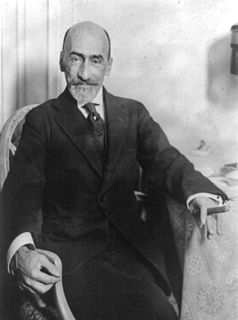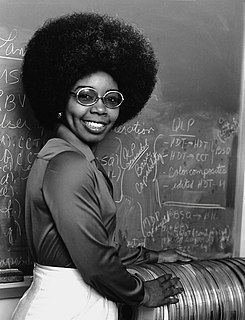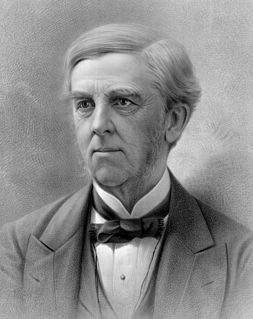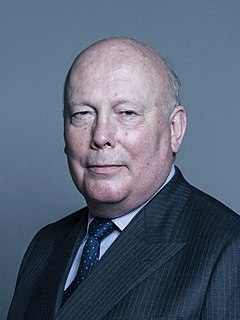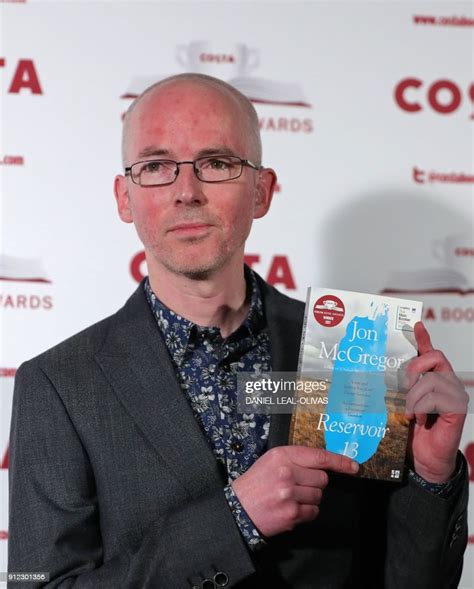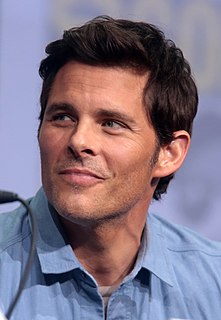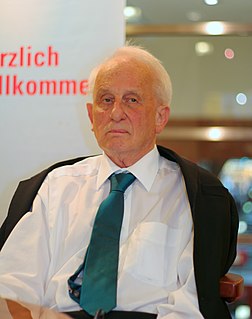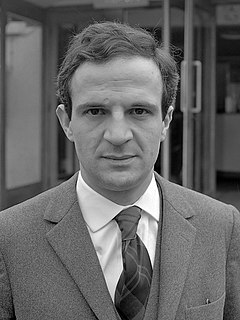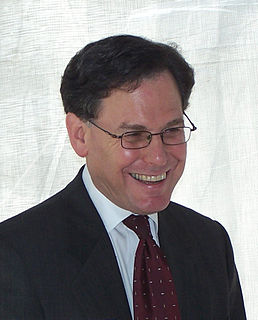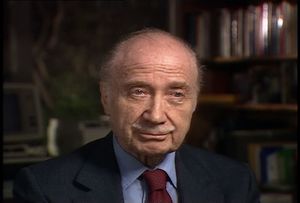Top 1200 Thinks Quotes & Sayings - Page 4
Explore popular Thinks quotes.
Last updated on November 5, 2024.
I've never met a girl who thinks like you." "A lot of people tell me that," she said, digging at a cuticle. "But it's the only way I know how to think. Seriously. I'm just telling you what I believe. It's never crossed my mind that my way of thinking is different from other people's. I'm not trying to be different. But when I speak out honestly, everybody thinks I'm kidding or playacting. When that happens, I feel like everything is such a pain!
We are not made up only of our light and happiness but also of darkness and sorrow. To deny the darkness of yourself is to deny half of who you are, and when you love, truly love, you need to love the whole person not just the part that smiles and waves, but the part that thinks murderous thoughts and knows that pain is both pleasure and temptation, but still thinks puppies are really cute.
I do believe in simplicity. It is astonishing as well as sad, how many trivial affairs even the wisest thinks he must attend to in a day; how singular an affair he thinks he must omit. When the mathematician would solve a difficult problem, he first frees the equation of all incumbrances, and reduces it to its simplest terms. So simplify the problem of life, distinguish the necessary and the real. Probe the earth to see where your main roots run.
The majority of America wants action on climate change. The majority of America thinks we should regulate carbon dioxide as a pollutant. And the majority of America thinks we should prioritize solar and wind infrastructure over fossil fuels. Those are impressive majorities, ones that every office seeker and office holder should heed.
The Washington press corps thinks that Julie Nixon Eisenhower is the only member of the Nixon Administration who has any credibility--and, as one journalist put it, this is not to say that anyone believes what she is saying but simply that people believe she believes what she is sayingit is almost as if she is the only woman in America over the age of twenty who still thinks her father is exactly what she thought he was when she was six.
Today, if the CEO thinks it's a good idea, it's done everywhere; if the CEO thinks it's a bad idea, it's done nowhere. We ought to be more agnostic and open to learning things that we didn't expect - and the only way to do that is to try things and be open-minded about how well they are working. And third, evidence-based management involves reading and learning - just like doctors do - and to do so not just in school but afterward, as well.
Donald Trump attacked the woman reporter writing the story, called her "disgusting," as he has called a number of women during his campaign. Donald thinks belittling women makes him bigger. He goes after their dignity, their self-worth, and I don't think there is a woman anywhere who doesn't know what that feels like. So we know what Donald thinks and what he says and how he acts toward women. That's who Donald is.
If I'm using Nonviolent Communication I never, never, never hear what somebody thinks about me. Never hear what somebody thinks about you, you'll live longer. You'll enjoy life more. Hear the truth. The truth is that when somebody's telling you what's wrong with you, the truth is they have a need that isn't getting met. Hear that they're in pain. Don't hear the analysis.
An interesting difference between new and experienced stage managers is that the new stage manager thinks of running the show as the most difficult and most demanding part of the job, whereas the experienced stage manager thinks of it as the most relaxing part. Perhaps the reason is that experienced stage managers have built up work habits that make then so thoroughly prepared for the production phase that they [can] sit back during performances to watch that preparation pay off.
[Thomas Henry] Huxley, I believe, was the greatest Englishman of the Nineteenth Century—perhaps the greatest Englishman of all time. When one thinks of him, one thinks inevitably of such men as Goethe and Aristotle. For in him there was that rich, incomparable blend of intelligence and character, of colossal knowledge and high adventurousness, of instinctive honesty and indomitable courage which appears in mankind only once in a blue moon. There have been far greater scientists, even in England, but there has never been a scientist who was a greater man.
Difference of thoughts will produce difference of language. He that thinks with more extent than another, will want words of a larger meaning; he that thinks with more subtilty will seek for terms of more nice discrimination; and where is the wonder, since words are but the images of things, that he who never knew the original should not know the copies?
The common ground where the activities of God and man become one is the motive of perfect love; for in the last resolve love is the essence of God's nature. When he thinks, love is his thought; when he wills, love is the product of his will. To the degree, therefore, that man thinks and wills the good--to the degree that he realizes love in his finite dealings--he interfuses himself with God.
For Christianity is a fighting religion. It thinks God has made the world- that space and time, heat and cold, and all the colors and tastes, and all the animals and vegetables, are things that God 'made up out of His head' as a man makes up a story. But it also thinks that a great many things have gone wrong with the world that God made and that God insists, and insists very loudly, on our putting them right again.
But lack of evidence, if indeed evidence is lacking, is no grounds for atheism. No one thinks there is good evidence for the proposition that there are an even number of stars; but also, no one thinks the right conclusion to draw is that there are an uneven number of stars. The right conclusion would instead be agnosticism.
I'm gathering Kylie thinks that all it takes to capture an image is to point and shoot. That's what everyone thinks. But there's a lot more to it. It's taken me years to frame things correctly. People assume you can't take good pictures on an iPhone, but they're wrong. Some of my best shots are on the phone.They're raw and simple, and most of the time no one knows you're taking a picture. It's much better than the thousand-dollar Nikon my dad got me for Christmas. I don't think I've used it in months.
Batman and the Flash have a whole lot in common behind the mask. They've both experienced loss, know forensic science, and are both a bit introverted. In 'Flashpoint,' Thomas Wayne thinks Barry is crazy, but Barry thinks Thomas is crazy. It'll be really fun seeing those two trying to figure things out.
Sometimes he thinks that if he could only trace the path of his life carefully enough, everything would become clear. The ways that he screwed up would make sense. He closes his eyes tightly. His life wasn't always a mistake, he thinks, and he breathes uncertainly for awhile, trying to find a pathway into unconsciousness, into sleep.
If I were to look in the United States or in Europe, in some of the garages, you would have a Bentley or two Bentleys or a high-end Mercedes, and you may find a Smart also in that same garage because that person thinks it's a fun extra car to have. He may have four cars but also have a Smart because he thinks it is cute.
The first principle, when you don't know anything about the subject of a thesis, is to let the candidate talk, nodding now and then with an ambiguous smile. He thinks you know, and are counting his mistakes, and it unnerves him... the second principle of conducting an oral, ... is to pretend ignorance, and ask for explanations of very simple points. Of course your ignorance is real, but the examinee thinks you are being subtle, and that he is making an ass of himself, and this rattles him.
The key is to trust in your own divinity, to know that you are a piece of God, and that you are like what you came from. As a spiritual being, you have Divinity within. When Albert Einstein was asked about the impact of quantum physics, he said, "It's just all details, I just want to think like God thinks." And God thinks in terms of creating, kindness, beauty and goodness.
Plotinus, when he thinks about mind or intellect, the Greek word is 'nous', he thinks about something that's very different, it's much more elevated and special, more abstract, you might say more philosophical than the very broad range of mental events that we talk about in contemporary philosophy of mind.
Kant does not think there is anything wrong with being beneficent from sympathy. He thinks we have a duty to cultivate sympathetic feelings by participating in the situations of others and acquiring an understanding of them. He thinks we also have a duty to make ourselves into the kind of person for whom the recognition that something is our duty would be a sufficient incentive to do it (if no other incentives were available to us). That's what he means by "the duty to act from the motive of duty".
A refugee is not just someone lacking in money and everything else. A refugee is vulnerable to the slightest touch: he has lost his country, his friends, his earthly belongings. He is a stranger, sick at heart. He is suspicious; he feels misunderstood. If people smile, he thinks they ridicule him; if they look serious, he thinks they don't like him. He is a full-grown tree in the dangerous process of being transplanted, with the chance of possibly not being able to take root in the new soil.
The citizen who thinks he sees that the commonwealth's political clothes are worn out, and yet holds his peace and does not agitate for a new suit, is disloyal, he is a traitor. That he may be the only one who thinks he sees this decay, does not excuse him: it is his duty to agitate anyway, and it is the duty of others to vote him down if they do not see the matter as he does.
Indeed we have souls. And if a person is religious, I think it's good, it helps you a bit. But if you're not, at least you can have the sense that there is a condition inside you which looks at the stars with amazement and awe. That listens to water with a river flowing, or water falling in rain and is lifted up by that and listens to a wonderful singer, wonderful musicians, listens to maybe Duke Ellington or Frank Sinatra or listens to Odetta and Mary J. Blige. Yes, and thinks whoo! And thinks, yes, hmm, all right now. My soul has been washed. I feel better, I feel stronger.
It doesn't have the ability to think rationally this economic model. It thinks like a drug addict: 'Where can I get my next fix?' It doesn't learn wisely. Any kind of measure of natural wisdom would be: you make a mistake, you correct it the next time around. But a drug addict feels terrible... and then says: 'I want more'. Unfortunately we have an economic model that thinks like a crack addict.
We try to evade the question of existence with property, prestige, power, possession, production, fun, and, ultimately, by trying to forget that we- that I- exist. No matter how much he thinks of God or goes to church, or how much he believes in religious ideas , if he, the whole man, is deaf to the question of existence, if he does not have an answer to it, he is marking time, and he lives and dies like one of the million things he produces. He thinks of God, instead of experiencing God.
He's lived a fiction. And, of course, he thinks that if you love someone enough, they will love you. And that if you steer things enough, things will, under your control, come right. And this is the fiction of the controller: a controller thinks that they can control their life into being what they want it to be. But their life will never be what they want it to be until they stop controlling, and that is their journey.
He thinks about her, at this moment, in her house, a few thin walls away, packing her life into boxes and bags and he wonders what memories she is rediscovering, what thoughts are catching in her mouth like the dust blown from unused textbooks. He wonders if she has buried any traces of herself under her floorboards. He wonders what those traces would be if she had. And he wonders again why he thinks about her so much when he knows so little to think about.
Being a philosophical naturalist does not mean that one thinks that science can provide all of the answers. That is scientism and that is wrong. I don't think a billion buckets of science could speak to the problems raised by the Tea Party. Being a philosophical naturalist does not mean that one thinks that the only truths are those of science. I think the claim just made in the last sentence is true but I don't think it is a claim of science. It means that you use science where you can and you respect and try to emulate its standards.
I've said this before, but I've always felt more comfortable playing the guy who thinks he's the hot shot or thinks he's the greatest and is so far from it, you know? The misguided character. That's always more interesting to me - especially with a comedy. I've always felt inside more like a character actor.
God is the treasure, and where the treasure is, there is the heart. By this we may test our love to God. What are our thoughts most upon? Can we say we are ravished with delight when we think on God? Have our thoughts got wings? Are they fled aloft? Do we contemplate Christ and glory? A sinner crowds God out of his thoughts. He never thinks of God, unless with horror, as the prisoner thinks of the judge.
There can be only one permanent revolution - a moral one; the regeneration of the inner man. How is this revolution to take place? Nobody knows how it will take place in humanity, but every man feels it clearly in himself. And yet in our world everybody thinks of changing humanity, and nobody thinks of changing himself.
My impression of Donald Trump, just having been around him. I don't think Trump needs a lot of advisers. I don't think Trump's sitting up there not knowing what he thinks, not knowing what he thinks is best. I don't think that as these things come and go, he runs around, "What do you think I should do?" I think what happens is he makes up his mind he wants to do something and then asks people how's the best way to make it happen. He goes and talks to the military.
Every man who speaks out loud and clear is tinting the "Zeitgeist." Every man who expresses what he honestly thinks is true is changing the Spirit of the Times. Thinkers help other people to think, for they formulate what others are thinking. No person writes or thinks alone--thought is in the air, but its expression is necessary to create a tangible Spirit of the Times.
Every generation thinks things are happening that have never happened before. Every generation of people thinks we're in the last days. Every generation's filled with pessimists. But when you have the Millennials generation, a majority of which have never had a job - you might even be able to put the period there: "Have never had a job, period" - or never had a job in a healthy economy.
I call George W. Bush a radical because he is undertaking a fundamental transformation of our Constitutional system of government and of our longstanding policies that have been accepted for literally generations. He thinks to concentrate unaccountable power in the Executive. He thinks you alter the laws so that, as Commander in Chief, he can determine, under what he says are wartime conditions, what the laws are, which laws should be enforced, and declare by fiat what our policy should be, even abrogating longstanding international treaties.
Almost everyone seems concerned with the need to relax tension. However, relaxation of tension, which everyone thinks is good, is not easily distinguished from relaxing ones guard, which almost everyone thinks is bad. Relaxation, like Miltown, is not an end in itself. Not all danger comes from tension. The reverse relation, to be tense where there is danger, is only rational.
A cat actually thinks visibly. If you watch him jump on a shelf, the wish to jump and the action of jumping are one and the same thing... It's in exactly the same way that all Brook's exercises try to train the actor. The actor is trained to become so organically related within himself, he thinks completely with his body. He becomes one sensitive, responding whole... The whole of him is one.
We've elected an untested prima donna, zero, zilch, nada experience, and it's coming home to roost, clear for one and all to see, and the guy thinks he's better and smarter than everybody else, is an aristocrat, an elitist, and is hell-bent on getting even with whatever he thinks the grievances of America have been in the past. Barack Obama equals politics of grievance. He has rallied an entire nation against him, and, believe me, it's a larger number of people than you would ever know, because the media of course is not portraying these numbers accurately.
Cheap grace is the idea that "grace" did it all for me so I do not need to change my lifestyle. The believer who accepts the idea of "cheap grace" thinks he can continue to live like the rest of the world. Instead of following Christ in a radical way, the Christian lost in cheap grace thinks he can simply enjoy the consolations of his grace.
Whatever the Thinker thinks, the Prover will prove. And if the Thinker thinks passionately enough, the Prover will prove the thought so conclusively that you will never talk a person out of such a belief, even if it is something as remarkable as the notion that there is a gaseous vertebrate of astronomical heft ("GOD") who will spend all eternity torturing people who do not believe in his religion.
The nobler sort of man emphasizes the good qualities in others, and does not accentuate the bad. The inferior does the reverse. . . . The nobler sort of man pays special attention to nine points. He is anxious to see clearly, to hear distinctly, to be kindly in his looks, respectful in his demeanor, conscientious in his speech, earnest in his affairs. When in doubt, he is careful to inquire; when in anger, he thinks of the consequences; when offered an opportunity for gain, he thinks only of his duty.


